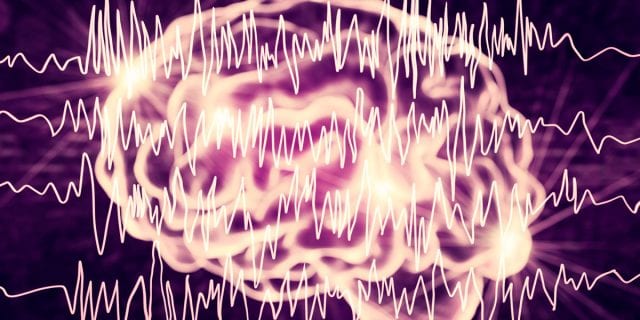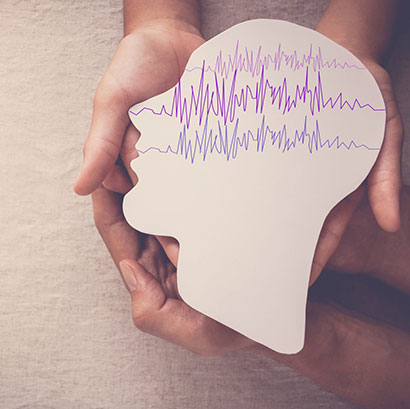Epilepsy and Seizure Disorder Treatment in New Jersey
Epilepsy is a neurological condition involving the brain that makes people more susceptible to having recurrent seizures. It is one of the most common disorders of the nervous system and affects people of all ages, races, and ethnic backgrounds.
At Hackensack Meridian Health, we have three epilepsy and seizure disorders treatment locations across New Jersey so you can access the most advanced medical and surgical procedures for diagnosing and treating epilepsy close to home. We also treat pediatric epilepsy and seizures.
Our team includes:
- Board-certified epileptologists
- EEG technologists who specialize in electroencephalography, a brain wave test for monitoring epilepsy
- Neuropsychologists and counseling psychologists
- Neuroradiologists
- Neurosurgeons who specialize in epilepsy and seizure disorders
- Pediatric and adult neurologists
- Physical and occupational therapists
- Registered dietitians, social workers and life specialists
- Specially trained nurses
Epilepsy Treatment Locations
Our multidisciplinary teams are skilled at using the latest treatments and technologically advanced surgical options — such as laser interstitial thermal therapy and deep brain stimulation — to treat refractory seizures that do not respond to medication or diet. Our three locations in New Jersey can be found at:
- Hackensack University Medical Center at Paramus, NJ
- JFK University Medical Center at Edison, NJ
- Jersey Shore University Medical Center at Neptune, NJ
Diagnosing Epilepsy and Other Seizure Disorders
To determine the type, cause and location of your seizures, our epileptologists will evaluate your health history, perform neurological and neuropsychological exams and order diagnostic tests, which may include:- Blood tests to help your physician diagnose health conditions that cause seizures.
- Electroencephalogram (EEG) to measure brain activity and identify the source of seizures. The types of EEGs performed include routine EEG, 24-hour ambulatory EEG, and sEEG.
- Genetic testing and counseling utilizes the latest tests such as whole-exome sequencing to diagnose and treat rare and inherited genetic conditions for both children and adults.
- Neuroimaging tests that can identify brain abnormalities that may be causing seizures, including magnetic resonance imaging (MRI), functional MRI, positron emission tomography (PET) and single-photon emission computed tomography (SPECT) scans.
- Stereotactic electroencephalogram (sEEG) exams place electrodes directly in the brain to precisely identify where epileptic seizures start.
Treatment Options for Epilepsy and Other Seizure Disorder
Our goal is the same as yours; to stop or decrease the frequency of the seizure, without interfering with your normal activities of daily living. Our treatment options include:
- Medication. Your epileptologist will help you find the best possible medication for seizure control with minimal side effects.
- Alternative therapies, such as hormonal treatment.
- Diet modification is a powerful treatment for epilepsy and may be useful in addition to medication or other therapies. Our registered dietitians can work closely with our epileptologists to design a specific dietary plan for you.
- Supportive care. Our team includes counseling psychologists, neuropsychologists, and social workers who work with you to manage depression, anxiety and other challenges that may arise during your epilepsy treatment.
- Stereotactic EEG brain mapping: We place electrodes into tiny holes in the scalp and monitor them for several days or weeks to identify where epileptic seizures originate.
- Stereoelectroencephalography-guided resective surgery is a cutting-edge surgical option for uncontrollable epileptic seizures. A neurosurgeon places electrodes in different areas of the brain to identify where epileptic seizures originate and removes the area of the brain that is causing seizures.
- Temporal lobectomy is a procedure that can lower the number of seizures a patient has, make them less severe, or even stop them from happening altogether
- Extratemporal lobectomy is an operation that cuts away brain tissue containing a seizure focus.
- Selective Subpial Corticectomy removes a portion of the cortex of the cerebrum
- Selective Amygdalo-Hippocampectomy removes portions of the medial temporal lobe and spares the unaffected portion of the anterior temporal lobe.
- Hemispherectomy partially or completely disconnects half of the brain from the rest of the brain.
- Corpus Callosotomy is a surgery that involves cutting a band of fibers (the corpus callosum) in the brain.
- Laser interstitial thermal therapy (LITT) uses precision laser technology to burn or destroy a lesion that causes epilepsy.
- Responsive neurostimulation prevents drug-resistant focal epileptic seizures by automatically delivering short pulses of electrical stimulation to areas of the brain where the seizures originate.
- Deep brain stimulation delivers electrical impulses to areas of the brain via electrodes to help reduce the frequency and severity of seizures.
- Vagus nerve stimulation sends small pulses of energy to the brain from the vagus nerve, which is a large nerve in the neck. It is most commonly used for people over age 12 whose partial seizures are not controlled by other methods.
Specialized Pediatric Epilepsy and Seizure Care
Joseph M. Sanzari Children’s Hospital at Hackensack University Medical Center, K. Hovnanian Children’s Hospital at Jersey Shore University Medical Center, and JFK University Medical Center treat the full spectrum of neurological conditions in children, including the most rare and complex. Joseph M. Sanzari Children’s Hospital was the first in New Jersey to implant a responsive neurostimulation (RNS) device in a pediatric patient to treat drug-resistant focal epilepsy.Our pediatric epilepsy monitoring units are the only monitoring units in New Jersey with board-certified pediatric neurologists who have advanced training and years of experience in pediatric seizure assessment, diagnostic testing, treatment and follow-up care.
Learn more about our pediatric epilepsy services.Frequently Asked Questions about Epilepsy and Seizures
At Hackensack Meridian Healthwe offer epilepsy and seizure disorder care at three main hospitals in New Jersey:
- Hackensack University Medical Center in Paramus, NJ
- JFK University Medical Center in Edison, NJ
- Jersey Shore University Medical Center in Neptune, NJ
To diagnose epilepsy or other seizure disorders, doctors review your medical history, perform neurological exams, and use tests such as:
- Blood tests
- Electroencephalogram (EEG)
- Genetic testing
- Neuroimaging (MRI, PET, SPECT, fMRI)
- Stereotactic EEG (sEEG)
A: For patients with seizures that don’t improve with medication, Hackensack Meridian Health offers advanced surgical treatments such as:
- Stereoelectroencephalography-guided resective surgery
- Temporal or extratemporal lobectomy
- Hemispherectomy or corpus callosotomy
- Laser interstitial thermal therapy (LITT)
- Deep brain stimulation (DBS)
- Responsive neurostimulation (RNS)
- Vagus nerve stimulation (VNS)
Pediatric epilepsy and seizure care is available at:
- Joseph M. Sanzari Children’s Hospital at Hackensack University Medical Center
- K. Hovnanian Children’s Hospital at Jersey Shore University Medical Center
- JFK University Medical Center
These hospitals provide advanced monitoring, testing, and treatments — including New Jersey’s first pediatric implantation of a responsive neurostimulation (RNS) device.













